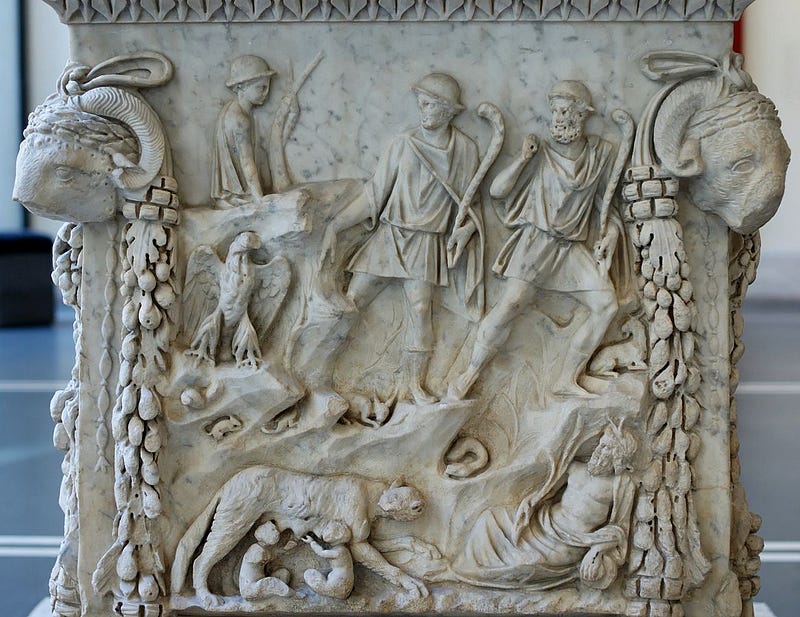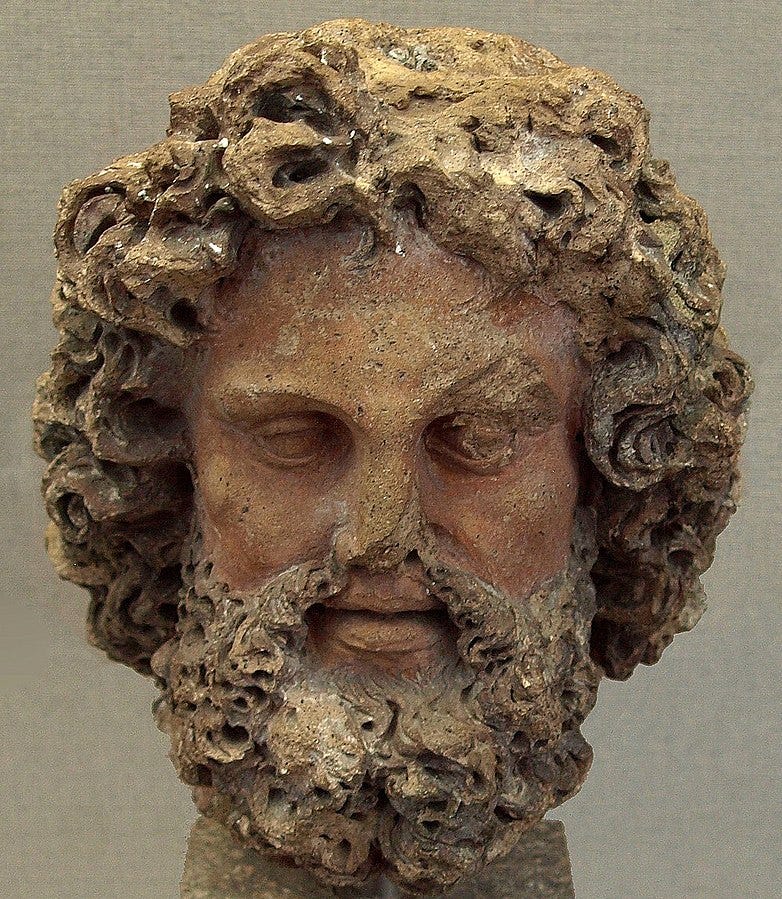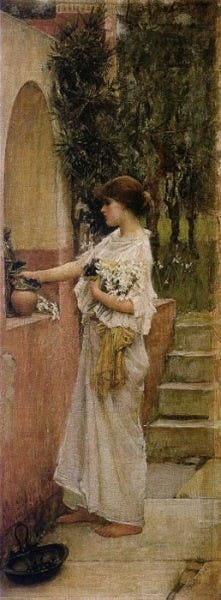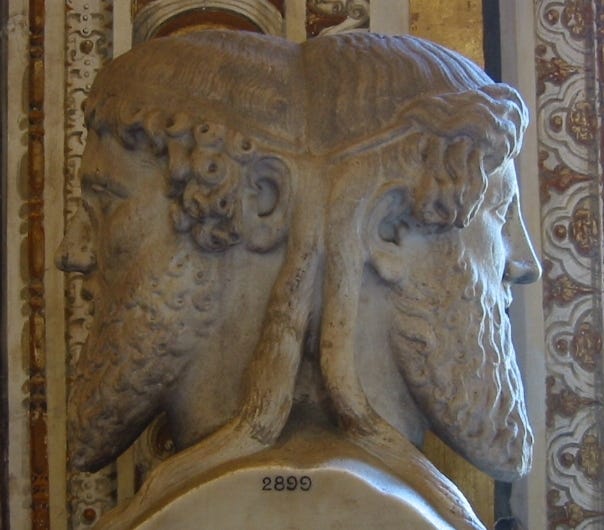# Unveiling the Unique Origins and Roles of Roman Deities
Written on
Chapter 1: Distinct Origins of Roman Deities
Roman deities cannot simply be viewed as imitations of their Greek counterparts; many have wholly unique origins. In the context of the Eternal City, Roman gods influenced numerous facets of life, yet they did not engage with humans as extensively as the Greek gods did. Central to Roman beliefs was the notion that deities did not descend into the mortal realm. What more can we learn about these gods? This article aims to provide insights into their nature.

The portrayal of ancient Roman gods often suggests they were derived from Greek mythology. While some Greek deities are indeed part of the Roman pantheon, it is crucial to recognize that Roman mythology was developing long before the Greeks exerted their influence. Consequently, not every Roman god aligns with the Olympians.
How many gods populate Roman mythology? The earliest form of Roman religion has its roots in primitive Indo-European beliefs. As time passed, the beliefs were shaped by the Etruscans and Greeks. During imperial times, Romans embraced deities from conquered peoples into their pantheon, even praying to the gods of their adversaries.
This blending of beliefs makes it difficult to ascertain the exact number of Roman gods. Besides the three primary deities, there were at least sixty gods overseeing essential aspects of daily life, not to mention many lesser beings that influenced everyday occurrences.
Section 1.1: Characteristics of Roman Gods
Initially, Romans viewed their gods as formless entities without specific genders. These deities did not intervene in human affairs and never revealed themselves to mortals. This impersonal view of gods evolved under Etruscan influence, leading to the adoption of rituals and the personification of deities. The first statues of Roman gods were created, and temples were constructed in their honor.
In Roman belief, a distinction exists between indigenous gods (di indigente) and those newly assimilated (di novensides). Greek mythology began permeating Roman beliefs around the 5th century BC, prompting Roman gods to adopt traits akin to their Greek equivalents. Romans adapted Greek narratives to fit their own context, often with minimal alterations, such as in the tale of Aeneas, which closely mirrors Homer’s “Odyssey.”
Even earlier, Roman beliefs absorbed deities directly from Etruscan culture. The Capitoline triad—Jupiter, Juno, and Minerva—was essentially an Etruscan triad of Tinia, Uni, and Menrva.

Interestingly, the Romans' openness to new religious practices resulted in a calendar filled with more holidays honoring specific gods than actual working days.
In addition to the principal gods, Romans venerated deities linked to less significant aspects of life, including protectors of families, homes, crops, and pantries. In earlier phases of Roman religion, these roles were often fulfilled by revered ancestors.
Section 1.2: Offerings to the Roman Gods
Romans sought divine favor in all their daily endeavors and natural cycles. The gods' influence spanned various activities—from sunrise to sunset, childbirth, and harvests, down to mundane tasks like opening gates and building walls. Each activity had multiple stages, each overseen or obstructed by higher beings based on their disposition toward the individual.
As a result, ritualism was a vital component of ancient Roman life. Maintaining a connection with the deities necessitated ongoing reverence, often requiring offerings.

Sacrifices were conducted in temples dedicated to specific gods, where food and wine were offered on altars, and sometimes blood was required. While the sacrifice of a single animal was common, offering entire herds was not unusual.
Did the Romans practice human sacrifice? Indeed, during the late 3rd and 2nd centuries BC, particularly during conflicts with Carthage, extraordinary sacrifices were made to appease the gods, attributed to their displeasure in times of defeat. A senatorial decree in 97 BC banned human sacrifices, although such instances had become rare by that time.
Chapter 2: Notable Roman Deities
Which gods were central to ancient Roman worship? Below, we explore some of the most significant divine figures in Roman mythology.
- Janus: One of the most prominent deities in Italic mythology, initially revered as the spirit of doors and transitions. He evolved into the god of beginnings, with January named after him.
- Jupiter: Eventually recognized as the supreme god, Jupiter controlled the sky, thunder, and rain, paralleling the Greek god Zeus.

- Mars: Known as the god of war and the second most significant deity after Jupiter, Mars was initially celebrated as the patron of spring and protector of shepherds.
- Quirinus: Revered after the conquest of the Sabines, he became a key figure associated with Romulus.
- Juno: As Jupiter's wife, Juno safeguarded women, motherhood, and marriage, though her following was less defined than that of her Greek counterpart, Hera.
- Minerva: Initially a goddess of craftsmanship, Minerva later encompassed learning and wisdom, blending attributes from Etruscan and Greek beliefs.
- Cupid: Born from the union of Mars and Venus, Cupid represents love, akin to the Greek Eros, often depicted as a winged youth.
- Neptune: The god of seas and storms, Neptune was the counterpart to Poseidon and was symbolized by a trident.
- Aesculapius: The healing god, akin to Asclepius in Greek mythology, who was integrated into Roman worship during a plague in 291 BC.
- Mercury: The god of trade and communication, Mercury was derived from Etruscan beliefs and became known as a divine messenger.
Dear readers, I invite you to consider the challenges faced by content creators like myself on platforms such as Medium.com. Despite our dedication to crafting meaningful articles, the compensation for our efforts is often minimal. If you enjoy my writing, please think about supporting me on my “Buy Me a Coffee” page. Any contribution, no matter how small, can inspire me to keep delivering engaging and thoughtful content. Thank you for being part of this journey!

